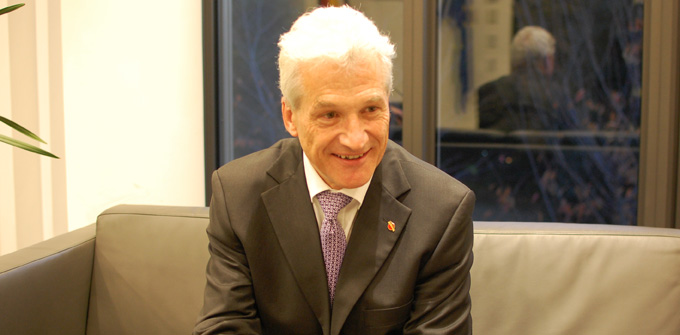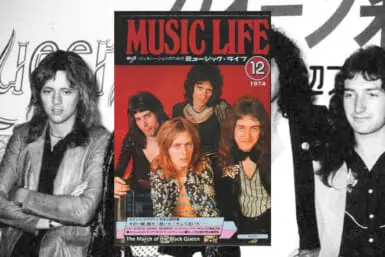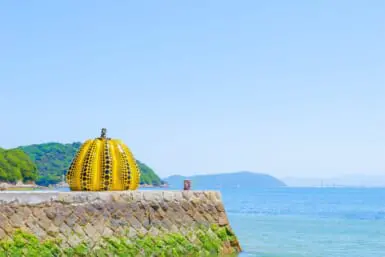After the 3.11 earthquake Germany was one of the most active countries in the international aid effort. Tokyo Weekender sat down with Dr. Volker Stanzel, Ambassador of the Federal Republic of Germany in Japan to discuss his embassy’s plans for 2012 and the continuing 150th anniversary celebrations of Germany-Japan diplomatic relations.
Tokyo Weekender: Last year when people were fleeing Japan, did you ever consider leaving the country?
Amb. Stanzel: No. Not at all. And we never recommended German people to leave Japan either.
We suggested Germans in the Tohoku area and parts of Kanto move to Western Japan, which is also what the embassy did.We relocated to our consulate in Osaka for three weeks.
Tell us about your personal experience on March 11, 2011?
On March 11, I was at the embassy [in Hiroo], I have been dealing with Japan for a while and people have been discussing the ‘big one’ since the 1970s but it was a obviously still a very big shock when the earthquake happened.
How did you communicate with the German community here?
We have a telephone system set up to call the German institutions here in Tokyo, for example the Chamber of Commerce and the German schools. Obviously for a while the phones didn’t work, so we used our email list to contact people—mainly focusing on Germans living in Tohoku.
After the phones started working again we got bombarded with emails and calls. We had a team sitting at the computers to deal with the requests and then we used our homepage to communicate further. We also brought in a nuclear expert very early on for advice and he helped us interpret the facts from the Japanese side.
How has the disaster changed your embassy’s role in Japan?
Our role in Japan hasn’t changed but our work has, in that we need to channel German support, not just financially, to Tohoku and to keep observing what’s happening in Fukushima.
We realized early on that it is not financial aid Japan needed most urgently, it might have been bringing in experts with particular knowledge. If we can figure out what help is needed and where, then the embassy can really help.
What do you think about the way the German media covered the nuclear incident in Fukushima?
The reaction of the German media can be explained by the experience of Chernobyl. There are regions in southern Germany where even today, you cannot eat wild mushrooms or meat from wild pigs because there is still radiation in the ground.
People in Germany understandably, are still extremely sensitive, so when the news reports came in the automatic reaction was— ‘my god, another Chernobyl,’ so that affected the style of reporting for a long time.
Did Fukushima affect the German government’s decision to phase out all nuclear power plants by 2022?
We had a law in place since 2001 in Germany that was based on a compromise with energy utility companies. It was agreed then, that all German nuclear power stations could operate no longer than 2030. What happened after 3.11 is that we decided to speed up the process by eight years.
Chancellor Merkel said this is directly because of Fukushima. Not because of the scale of the incident, it is a very different type of situation to Chernobyl for example, but it is based on the realization that even with perfect technology there is still a risk. If a country like Japan cannot avoid problems, then it is very hard to imagine that any other country could.
Can you tell us a little about the current status of the German community in Tokyo today?
As far as the business community, it seems that many companies who haven’t looked at Japan for many years are now starting to focus their attention more on Japan.
Today, the German chamber of commerce has more members than a year ago but if you look at people who represent these companies it’s mainly expats without kids. In the German schools we have fewer children than before too. But it is still difficult to say exact numbers, as we don’t require citizens to register with the embassy.
Are you concerned at all about food safety after 3.11?
No. We still have our nuclear expert here and we constantly keep in touch with our French and British colleagues—and we put all the data on our website.
Those who left Tokyo for Western Japan or returned home to Germany acted rationally but once you realize there is no danger, there is no reason to stay away from Japan, or panic about food. When people in Germany ask us ‘is Japan safe?’, we always answer positively.
Looking forward to the rest of 2012, what are your main plans at the German embassy?
First of all, we will support Tohoku as long as necessary. Secondly, we will conclude our 150-year anniversary activities (started in 2010).
We had activities planned up until October 2011 but after the catastrophe, most of our plans were cancelled. We decided to continue after 2011, and we have events planned well until March 2012. So far, we have had over 800 events in Japan.
For more information about Germany/Japan events, please visit: www.tokyo.diplo.de









